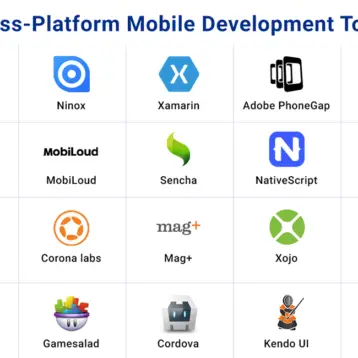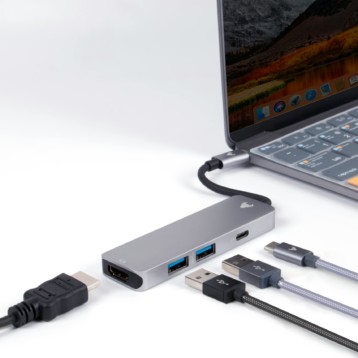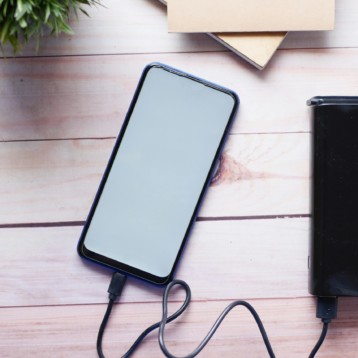Do enhancements in Mobile Technology & Large Data Plans spell the end of Desktops in Canada?
As recently as a decade ago, almost all Canadian web browsing was taking place on laptops and desktop computers. The explosion in smartphone popularity since 2007 has rapidly changed the landscape of browsing. Desktop computer use is considered by some to be dropping off quickly (we’ll examine that more closely in a moment) as mobile devices encourage new and instant types of interactions. Many millennials don’t use don’t use computers at all, instead relying entirely upon their smartphones to pay their bills, go shopping, book their holidays or even their online gaming and betting needs such as real money Canadian online casinos.
Internet Usage changing quicker than expected
A couple of years ago, the conventional wisdom was that desktop usage (for the purpose of this article, ‘desktop’ referring to both desktop and laptop personal computers) would level off and grow at a slower rate as mobile device (smartphones and tablets) adoption took hold. However, things are changing far more rapidly than expected. Is Desktop internet use actually falling? No, not all. In fact, its growth as the internet itself grows as a whole. Indeed, statistics from the US on desktop internet usage back up the anecdotal evidence we’ve experienced here in Canada. The Wall Street Journal stated in April 2016 ‘that time spent on the Internet from mobile devices was indeed growing quickly, but that desktop Web usage was growing at the same time. Basically, consumers were spending more time online overall.’
At the same time, mobile phone browsing rates are through the roof.
How and Why are things changing so quickly?
So, we’ve established that it’s the internet itself that is growing at an expediential rate and that mobile users are at the heart of the big increase. It is no longer exclusively the increased big data plans that telecommunications providers are supplying to consumers in excellent ‘packaged’ phone payment plans that is driving the growth in mobile browsing. There is a range of diverse and interesting changes in Canadian consumer behaviors that the mobile technology itself is facilitating.
The future is now
You’ve probably heard in the media something about the growth in mobile browsing being “the next big thing”. However, the truth is that mobile has already arrived long ago and it’s here to stay and they are already an integral part of the way we interact, shop, search, bank, book holidays and gamble.
Mobile browser users keep their devices close-at-hand, check them frequently, and tend to use multiple devices at once, in order to consume information and convert their searches into a purchase. This is an entirely different experience to that of using a desktop. Those differences between mobile and desktop users include;
- Mobile Browser User Activity usually peaks morning and evenings (more often in leisure time)
- Desktop use increases during the day and backs off in the early evening. Of course, it’s work-related. (Stop doing your banking, booking your next holiday, or researching the best real money online Canadian casinos at work!)
- Mobiles are used for quick searches to narrow down the search for a longer in-depth search on a desktop to take place at a later date.
- Content and the way it is delivered is important for both types of device users. (e.g. Many mobile users who run up against a non-mobile-optimised website will immediately bounce back to their search results to look for a site that is mobile-friendly or move to their desktop to research the site in greater detail).
- Desktop Users tend to be engaged for more-in-depth longer periods whilst mobile browsers may generally have a situation-specific lower attention span preferring situation-related and leisure-themed content.
- Desktop still rules in the work environment and it will be quite a while before that alters; and
- Mobile Browser Users are Younger and More Receptive, don’t like lists of ‘differences’ like this but do insist on much better customer service.
Mobile Users drive improvements for all in Customer Service
The days of people tolerant to bad service by phone companies, electricity and banks are ancient histories. No-questions-asked refunds within 24 hours (even for online purchases) have now become the norm, not the exception. Businesses that are not doing it, are behind the times. The Generation “Now” Mobile Browser generation will not tolerate poor service or bad customer experiences. Not only do they want their goods and service immediately. They have no patience for poor business procedures and bad experiences. They will switch allegiances quickly as they have an almost infinite range of suppliers available at their fingertips on their phones.
However, it goes deeper than that. The ‘new’ Customer Experience begins in the mind.
A “need” or “want” is formed inside the brain — a new car, boat, online casino or an iPhone, perhaps even a piece of software or a new external hard drive. After an intensive Google search to narrow down options, and possibly checking blog reviews on their chosen product, a purchase or an enquiry is made. The product or service is quickly received. If broken, a fix or refund is forthcoming rapidly. If the experience is a good one, engagement with the chosen brand continues happily, possibly without customer feedback. The continuation of the relationship itself is considered to be the feedback. If things go amiss, the customer may totally fall off the radar, never to be heard from again.
In conclusion
Some Canadian desktop users may bemoan that their long-time favourite news site, or email provider is changing to the more-mobile-friendly Windows 10 delivery platform. However, overall, it must be said that the enhancements made to the internet in general are being driven almost exclusively by improvements in mobile technology. Moving forward, the enhancements being made to mobile technology should benefit ALL internet users, mobile or desktop.











